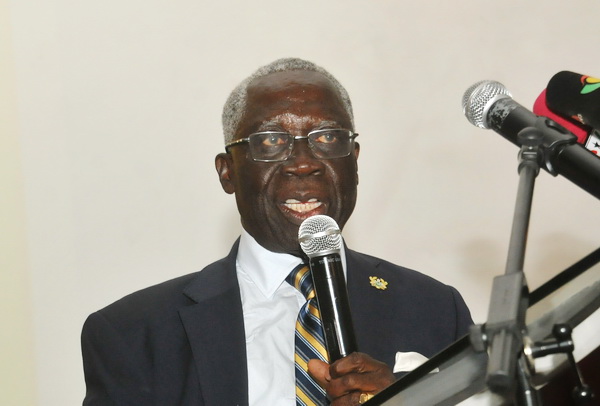
Govt loses huge tax revenue as big companies manipulate system
Ghana loses significant tax revenue through the deliberate manipulation of the tax system by big corporate entities and multinational companies, the Senior Minister, Mr Yaw Osafo-Maafo, has said.
He described the situation as worrying and tasked the Ghana Revenue Authority (GRA) to go after those companies and prosecute them if they were found culpable.
Speaking at the opening ceremony of the eighth annual international tax conference in Accra on Wednesday, Mr Osafo-Maafo said: “Through the so-called smart accounting, base erosion and profit shifting, significant tax revenues are lost through tax avoidance and, in some instances, tax evasion,” he said.
Tax conference
The two-day conference is being organised by the Chartered Institute of Taxation, Ghana.
The event, which is held annually, seeks to create the platform for tax experts from all over the world to discuss the challenges and issues derailing the expansion of tax revenue mobilisation.
This year’s event is on the theme: “Rethinking fiscal strategies for growth in middle-income economies”.
Evidence
Backing his claim with an example, Mr Osafo-Maafo mentioned the recent case involving the Ghana Bauxite Company that had posted substantial losses over a period of six years and yet had applied for a permit to expand its operations.
“The company, over the past six years, has been making losses, except in 2015 when some marginal profit was recorded. The total losses for the period amount to US$30 million. Ironically, this same company is applying for an additional permit to expand its operations. Does the company exist with the primary objective of making losses?” he asked.
Other issues
Outlining some of the issues that accounted for the poor performance of tax revenue, he said Ghana’s economy was characterised by an “informality bulge”.
“This means significant proportions of economic activities take place within the informal sphere. An estimated 40 per cent of Gross Domestic Product (GDP) is generated from the informal economy. It employs close to 60 per cent of the active labour force, yet about 80 per cent of those employed in the informal sector do not pay any form of direct tax,” he said.
Mr Osafo-Maafo said the anomaly must be tackled in order to engender growth towards a Ghana beyond aid.
He stressed the need for tax policies and administration to be aligned to support the development agenda of attaining economic liberation and breaking the cycle of dependency on aid and handouts.
“For this to be attained, we need an innovative and technologically driven tax regime which will address the current setback,” he said.
He also suggested collaboration among various stakeholders towards addressing the poor attitude towards the payment of taxes, adding that tax institutions must help the government mount an aggressive campaign to transform the mindset of citizens regarding taxation.
Tax institute
The President of the Chartered Institute of Taxation, Ghana, Nii Ayi Aryeetey, said the purpose of the conference was to explore avenues for innovative taxation which was crucial for the country’s economy.
Over the past years, he said, the institute had held various tax conferences to throw more light on issues that derailed Ghana’s effort to enhance its tax revenue mobilisation.
“After this conference, we will come up with a communique that will outline measures and make recommendations regarding the way forward for the country’s tax system,” Nii Aryeetey said.
